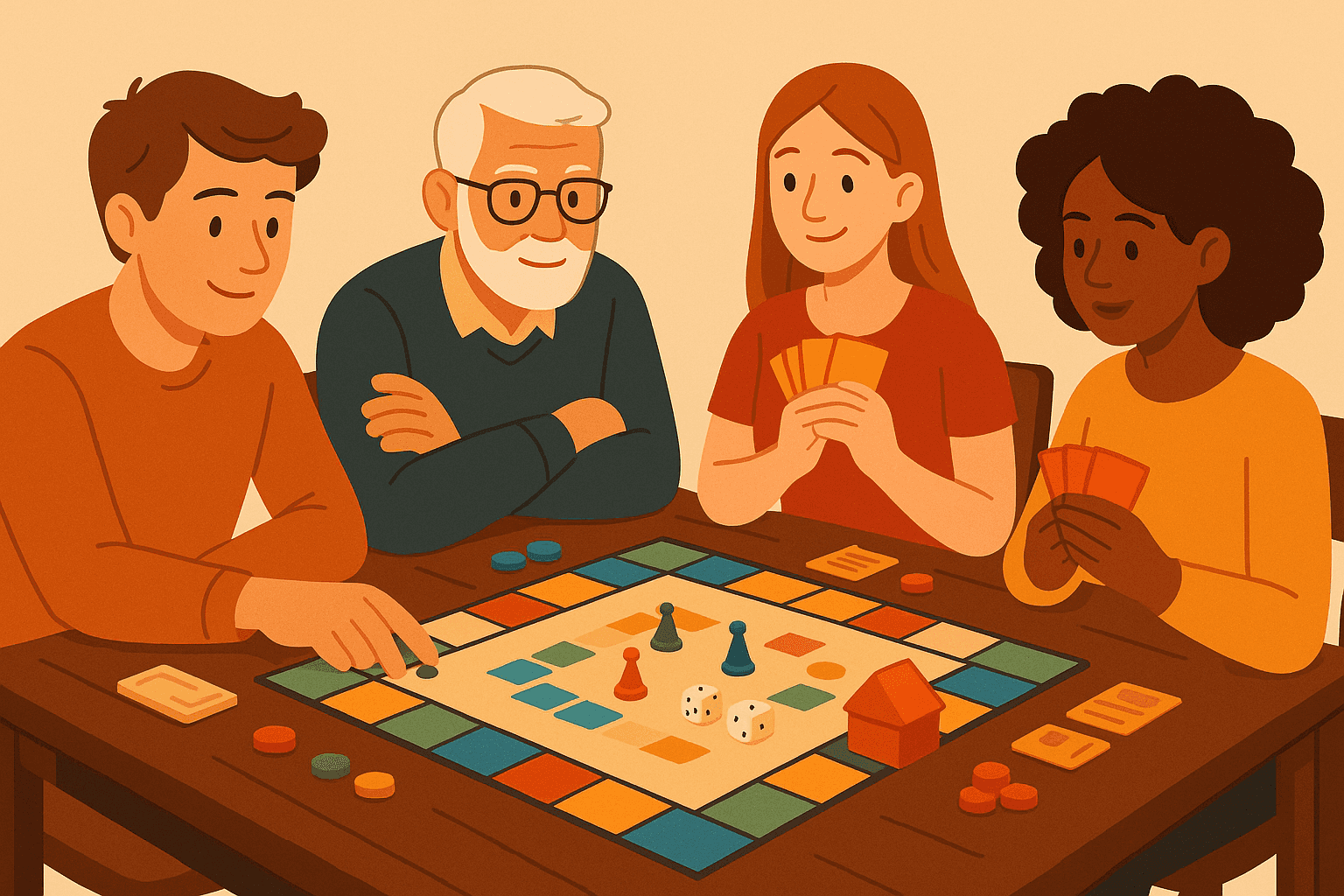
Balancing Skill Levels When Playing with Mixed Experience Groups
Board games bring people together - but what happens when your group includes both seasoned veterans and total beginners? Without balance, experienced players can dominate while newcomers feel left behind. The key is creating an environment where everyone has fun, no matter their skill level.
This guide explores practical ways to balance skill levels when playing with mixed experience groups, using house rules, team play, and smart game choices to keep things fair and engaging.
Created By Adam Davis Fernsby
The Challenges of Mixed Experience Levels
When different skill levels meet at the same table, a few common problems can arise:
- Experienced players dominate by knowing strategies and optimal moves
- Beginners get frustrated if they can’t keep up or feel they don’t stand a chance. Learn more in our article beginners guide of playing cards here on Playiro.
- Group dynamics suffer if one side feels excluded or overwhelmed
Balancing the game ensures that everyone - from first-timers to experts stays invested and enjoys the session.
Strategies for Balancing Gameplay
Use House Rules and Gentle Handicaps
Small tweaks can go a long way in balancing a game:
- Give beginners a slight boost, like extra resources, starting money, or bonus moves
- Impose light handicaps on advanced players, such as fewer starting assets or stricter win conditions
- Adjust random elements (like dice rolls or card draws) to help level the playing field
Example: In Catan, let beginners start with one extra resource card. In Monopoly, give skilled players less starting cash.
Encourage Cooperative and Team Play
Instead of pitting players against each other individually:
- Pair beginners with experienced players in teams to share strategies
- Choose cooperative games where the group works together against the game itself
This way, learning happens naturally, and advanced players still get to use their skills without overwhelming the table.
Adjust Game Choices
Some games are more beginner-friendly than others. For mixed groups:
- Pick luck-driven games (like Uno or Monopoly) where chance balances skill
- Choose cooperative games (like Pandemic or Forbidden Island) where teamwork matters more than individual dominance
- Rotate between light party games and strategy-heavy games so everyone gets a chance to shine
Teach, Don’t Dominate
Experienced players should focus on mentoring instead of crushing opponents:
- Explain strategies openly without giving away every move
- Highlight common mistakes to help beginners improve
- Celebrate smart plays from less experienced players to keep morale high
Examples from Popular Games
- Catan: Beginners get an extra resource card at the start, or advanced players must wait one turn before trading.
- Chess: Use handicaps like removing a minor piece from the stronger player’s side, or shorter timers for experts.
- Monopoly: Advanced players start with less cash, while beginners can receive one free property at the start.
Creating a Fun Group Atmosphere
Balance isn’t just about rules - it’s also about attitude:
- Put fun before competition - the goal is to enjoy the experience together
- Rotate who chooses the game to keep variety and fairness
- Keep the atmosphere light with laughter, casual play, and good sportsmanship
When everyone feels included, the group grows stronger and games become more enjoyable.
Conclusion
Balancing skill levels in board games is about creating fairness, fun, and learning opportunities. Whether you use house rules, team play, or simply pick the right games, the goal is to ensure everyone at the table has a good time. Beginners get to learn, advanced players stay challenged, and the group as a whole enjoys richer game nights.